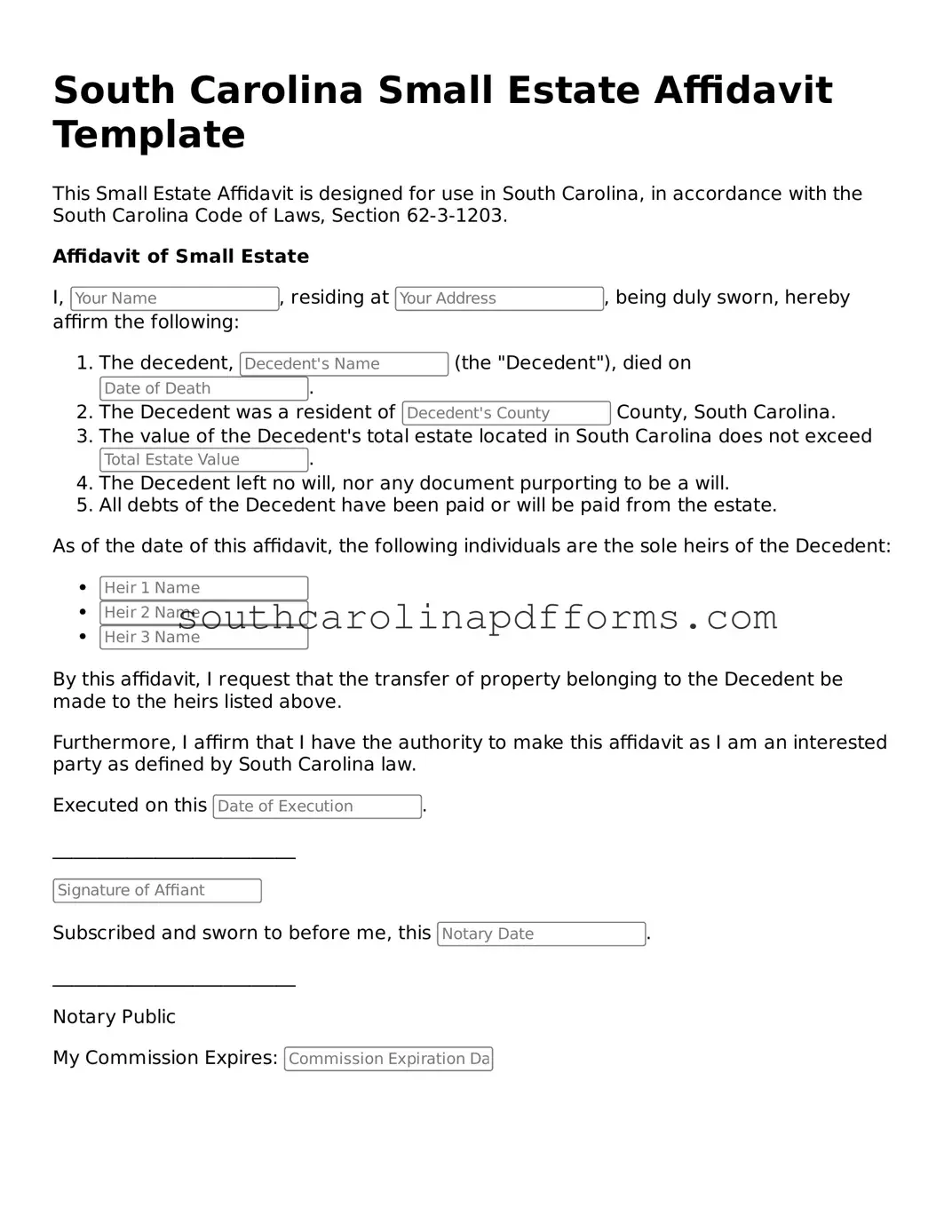Attorney-Approved South Carolina Small Estate Affidavit Document
The South Carolina Small Estate Affidavit is a legal document that allows individuals to settle the estate of a deceased person without going through the lengthy probate process. This form is particularly useful for estates with a total value below a specified threshold, enabling heirs to claim assets more efficiently. Understanding how to properly use this affidavit can simplify the process of estate administration for families during a challenging time.
Access Small Estate Affidavit Here
